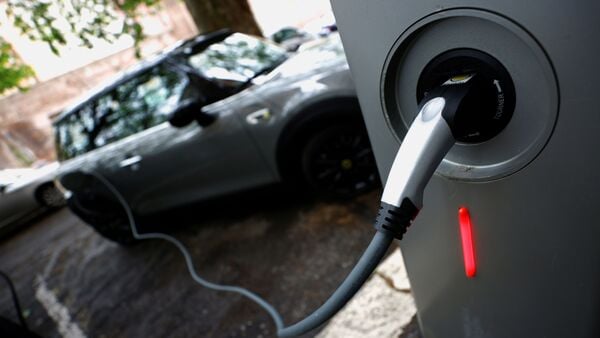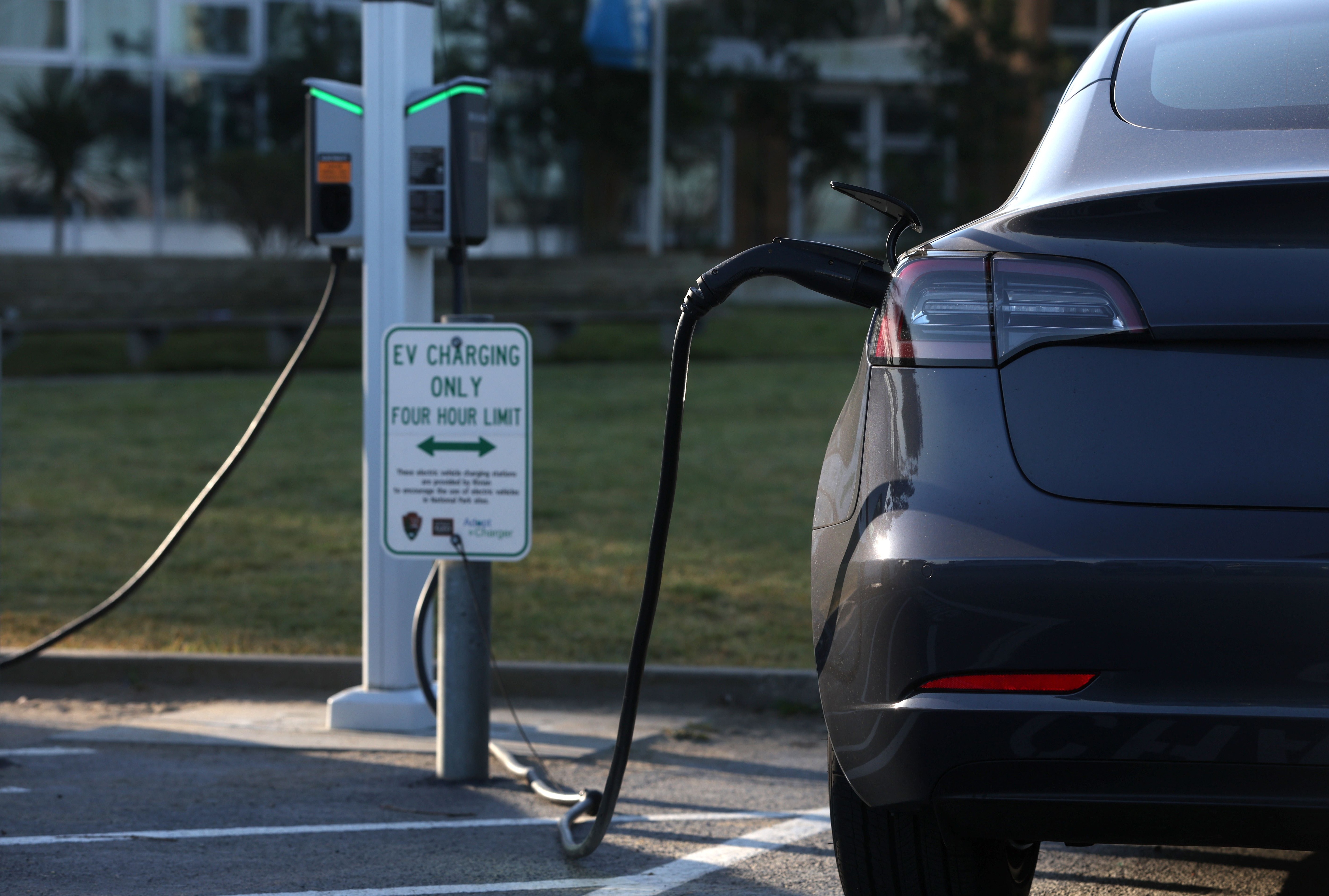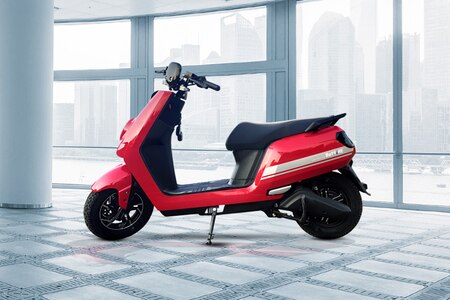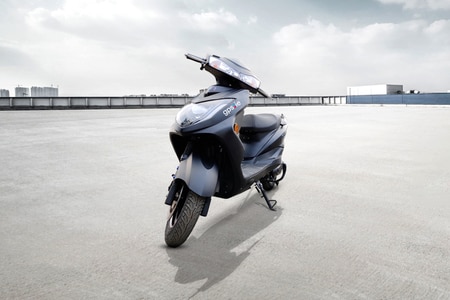Electric-vehicle push bumps up against chaos in nickel market
- Surging nickel prices threaten to put a dent in the auto industry’s EV ambitions, with the key battery metal caught up in war-induced supply worries.


A global push among automakers to expand their lineups of electric vehicles just got a lot more expensive.
Surging nickel prices threaten to put a dent in the auto industry’s EV ambitions, with the key battery metal caught up in war-induced supply worries and a short squeeze that’s sent prices to unprecedented highs. While analysts say prices will subside from current stratospheric levels, the bad news is that they could remain elevated and add hundreds of dollars in costs.
Also check these Vehicles
The EV industry was already scrambling to secure battery metals for an expected jump in demand. Tesla Inc.’s Elon Musk in recent years has pointed to the chances of a structural deficit for nickel among his biggest concerns. The price surge means automakers will have to redouble efforts to find substitutes or alternate sources, one of which could come from Tsingshan Holding Group Co., the Chinese mining giant at the center of the short squeeze that last year introduced a way to produce battery nickel from low-grade ore.
Also Read : Sales of EVs triple in India in 2021, electric mobility picks up momentum
“Nickel is the single biggest component in terms of cost," said Sam Abuelsamid, principal research analyst at Guidehouse Insights. “So any change will have a significant impact."
For now, buyers are also saddled with a lot of uncertainty over prices. The London Metal Exchange said it doesn’t expect the nickel market will reopen before March 11, after trading was suspended Tuesday following the price frenzy.
While nickel prices had been rallying for weeks amid fears of disruption from key supplier Russia, this week’s price spike was triggered when holders of short positions, including Tsingshan, rushed to close them out.
Also Read : Maharashtra govt launches Mumbai EV cell for faster electric mobility transition
Prices rose as much as 250% in two days to more than $100,000 a ton. The LME said Tuesday that trades that took place in Asian hours before the suspension would be cancelled. At Monday’s closing price of about $48,000, a 100 kilowatt-hour battery would require about $3,100 worth of nickel, which is more than double last year’s average cost. When the dust settles, analysts said nickel could remain elevated this year and carmakers will see higher prices and could add hundreds of dollars in cost per car.
‘Volatile Beast’


A global push among automakers to expand their lineups of electric vehicles just got a lot more expensive.
Surging nickel prices threaten to put a dent in the auto industry’s EV ambitions, with the key battery metal caught up in war-induced supply worries and a short squeeze that’s sent prices to unprecedented highs. While analysts say prices will subside from current stratospheric levels, the bad news is that they could remain elevated and add hundreds of dollars in costs.
The EV industry was already scrambling to secure battery metals for an expected jump in demand. Tesla Inc.’s Elon Musk in recent years has pointed to the chances of a structural deficit for nickel among his biggest concerns. The price surge means automakers will have to redouble efforts to find substitutes or alternate sources, one of which could come from Tsingshan Holding Group Co., the Chinese mining giant at the center of the short squeeze that last year introduced a way to produce battery nickel from low-grade ore.
“Nickel is the single biggest component in terms of cost," said Sam Abuelsamid, principal research analyst at Guidehouse Insights. “So any change will have a significant impact."
For now, buyers are also saddled with a lot of uncertainty over prices. The London Metal Exchange said it doesn’t expect the nickel market will reopen before March 11, after trading was suspended Tuesday following the price frenzy.
While nickel prices had been rallying for weeks amid fears of disruption from key supplier Russia, this week’s price spike was triggered when holders of short positions, including Tsingshan, rushed to close them out.
Prices rose as much as 250% in two days to more than $100,000 a ton. The LME said Tuesday that trades that took place in Asian hours before the suspension would be cancelled. At Monday’s closing price of about $48,000, a 100 kilowatt-hour battery would require about $3,100 worth of nickel, which is more than double last year’s average cost. When the dust settles, analysts said nickel could remain elevated this year and carmakers will see higher prices and could add hundreds of dollars in cost per car.
‘Volatile Beast’
|#+|
“Nickel can be a volatile beast," said William Adams, head of base metal and battery research at Fastmarkets in London.
Here’s how the math works. A 100 kilowatt hour battery needs about 145 pounds of nickel, according to BloombergNEF. Last year’s average price was about $18,500 per metric ton, Adams said. That means about $1,200 of nickel in every battery. At $29,000 per metric ton, where it closed Friday before the worst of the short squeeze, that same battery needed more than $1,900 in nickel. It’s not a huge jump, but carmakers don’t like to see the cost of one material go up by $700 a vehicle.
Carmakers do lock in long-term supply contracts and can avoid price hikes on the spot market for a while, but if higher pricing persists then they will be paying more.
New sources are coming on line in Indonesia, and Russian nickel will find its way out to China and other nations that aren’t using sanctions or boycotts, but Adams sees prices remaining elevated this year. He expects the metal to trade in the $20,000 to $25,000 per ton range this year and could average around $22,000. He has not updated his forecast yet, though.
That will put a squeeze on the margins of an already profit-challenged part of the market and could entice auto companies to hasten their move toward other metals.
Last year, Tsingshan, the world’s largest nickel producer, started shipping its first cargo of so-called nickel matte. It’s a new way to make nickel for batteries that analysts including BNEF’s Allan Ray Restauro and Kwasi Ampofo say may open up a big supply route from low-grade ore mines for EVs.
While capacity is limited at the moment, Tsingshan had shipped its first batch of nickel matte for electric-car batteries from its Indonesia plant, with three production lines under operation with monthly capacity of 3,000 tons, researcher Mysteel reported in January.
The new process, if followed by other nickel-pig-iron producers, will likely add more to supply for battery-grade nickel, according to BNEF’s Restauro.
Restauro expects the conversion from nickel pig iron to nickel matte to accelerate, although this requires nickel prices to remain elevated for medium to longer-term as this would require additional capital to invest in change over existing furnaces.








 3.1 kWh
3.1 kWh 60 km
60 km














